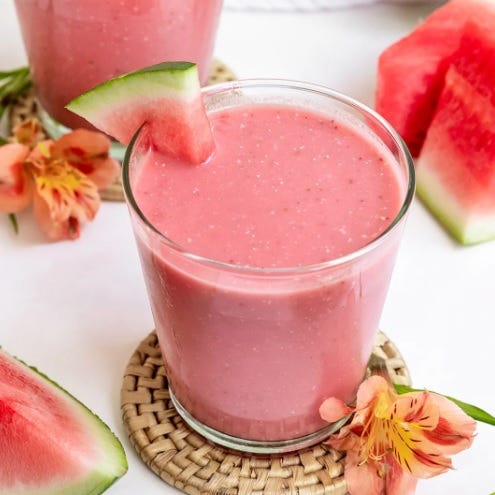
You would have noticed kombucha, sauerkraut, kimchi and coconut yoghurt making their way to supermarket shelves in the past couple of years. These gut-loving foods are becoming popular on the mainstream stage, and for good reason: they recognise a health buzz that benefits the world of the human microbiome. Your microbiome is your community of living microbes, including beneficial bacteria (and non-beneficial bacteria) in your gut. It’s important your gut bacteria are balanced in favour of the beneficial type, so they can provide the many benefits that support your optimal digestion and health. These beneficial bacteria even make some nutrients for us, as well as protecting us from more pathogenic species of bacteria.
What are prebiotics and probiotics and how do they work together?
Probiotics, specifically, refer to beneficial bacteria, while prebiotics are the foods that feed the beneficial bacteria living in your intestine. Firstly it is important that you foster the right strains of bacteria, either in or passing through your gut. Secondly, it is equally important that you feed these beneficial bacteria with the right probiotic foods to keep them healthy.
Estimates state that you have ten times more bacterial cells living in your body than human cells. When you think about it, you are more bacteria than you are human! Therefore, you need to ensure you are hosting the right bacteria and also feeding it the right foods to survive and thrive.
Without proper digestion, your body will not be able to break down food into small enough pieces or ''prebiotics'' that your bacteria can use as fuel. If you have any trouble digesting food, add hydrochloric acid support and digestive enzymes to your dietary intake. Once you have started working on building up healthy levels of digestive enzymes, it is the perfect time to start adding in prebiotics. These can then break down easily and feed your beneficial bacteria to support optimal gut health. Not doing this first may cause bloating and indigestion as your digestion has trouble breaking down these foods.
Are you getting enough prebiotics in your diet?
To provide your gut with exactly what it needs for your gut bacteria to thrive, it’s helpful to add in more prebiotic foods such as:
- Garlic (raw)
- Onions (raw)
- Artichoke
- Sweetcorn
- Watermelon
- Nectarines
- Millet
- Cashews
- Legumes - The powerhouse of prebiotics including Lentils, Beans, Chickpeas etc*
Take a closer look at your bacteria
You have an estimated 100 trillion bacteria within your digestive system and they are completely integrated with your immune system. They make a lot of your metabolites, vitamins, precursors to neurotransmitters, modulate your immune system, and are known to influence your genetic expression. These clever bacteria are so vital to your health!
In research, the benefits of probiotics are incredibly broad from the obvious, like assisting with the digestive system, to strengthening the immune system and even contributing to mood.
The list of known beneficial species of bacteria is growing by the week. You may have heard of some of the common ones like lactobacillus acidophilus, the beneficial bacteria that are associated with yoghurts. Many fermented foods contain a variety of beneficial bacteria (and yeasts) hence it is often beneficial to try and consume a variety of these foods on a daily level to keep up species diversity and numbers to support a happy, healthy microbiome.
Let’s take a look at how your upper digestion can affect your balance of beneficial and non-beneficial bacteria. Low stomach acid (often linked to zinc deficiency) and a lack of digestive enzymes can result in the pH of your intestines being out of balance. When your pH isn’t at the right levels, it provides an ideal environment for your non-beneficial bacteria and for bacteria to grow in the wrong parts of the intestines.
Why is it important to add prebiotics?
Unfortunately, your modern diet and environment, with its added toxins, stress levels and processed foods, is proving to impact your microbiome in a significant way. This can be found in a lack of diversity and numbers of bacteria that support you living with optimal health. You then find yourself in trouble, as your beneficial bacteria and non-beneficial bacteria are out of balance.
Sugar is a major culprit in the modern diet. Non-beneficial bacteria feed on sugar and a diet high in sugar allows pathogen strains of yeast to overgrow.
Some medicines, such as antibiotics, definitely play a vital role to your health. However, they can also play a part in impacting your microbiome. For this reason, it can be beneficial to reintroduce beneficial bacteria to the gut with a probiotic after a course of antibiotics.
How can you add more probiotics to your diet?
Include a quality daily probiotic. Research shows the promotion of diverse beneficial gut bacteria with a quality daily probiotic is important for supporting optimal digestion, nutrient absorption and ultimately your health and energy status.
You can also increase your daily intake of fermented foods. Fermented foods help restore the correct balance and diversity of beneficial bacteria in your gut.
Fermented foods include:
- Sauerkraut
- Kefir
- Kombucha
- Yoghurt
- Kimchi
The truth of the matter is that you require both prebiotics and probiotics to support a healthy microbiome. It is a highly synergistic relationship, where you provide a home (your gut) and resources (prebiotics) for the bacteria (probiotics), and in return, they support your overall health and vitality.
Do note: as you increase your consumption of prebiotics, excess gas production can be a side effect until your microbiome gets up to speed with your new diet.
*Please note that this list is not at all exhaustive. Be sure to do further research for a full list of prebiotic foods.









